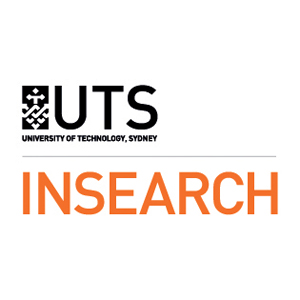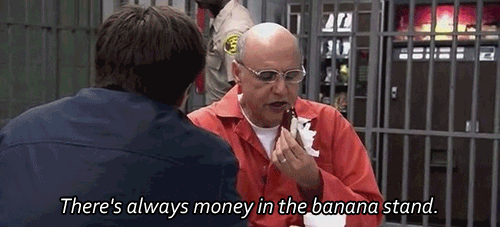From Medicine To Mexican Food: Careers Don’t Look The Same As They Used To
Some advice from Zambrero founder Dr Sam Prince.


Brought to you by UTS:INSEARCH
Together with UTS:INSEARCH – a service that helps you find another way into UTS – we’re asking some successful young Australians to tell us about their first job, and how different it is from what they’ve wound up doing today.
–
Here’s a fact that may well ruin the next pile of nachos you smash your face into: Sam Prince started Zambrero when he was just 21 years old. At the same age when you had finally figured out the right way to roll a burrito, his business had already been named the fastest growing franchise in the country by Business Review Weekly.

But, unlike every other serial overachiever and creative wunderkind you openly loathe, all this wasn’t the result of a freakish innate skill or long-held conviction. In fact, when he started his hospo business — one which has since parleyed its success into philanthropy with their Plate 4 Plate scheme, in partnership with Stop Hunger Now — he was actually a med student. By the time he graduated he already had two stores set up, and then went on to run the business as a full-time doctor for a number of years.
With the idea of a “real job” in constant flux, we asked him to share his whole story: one that proves there’s always more than one path to take, and that you can always make a career out of guacamole.
–
First Jobs Are Always Pretty Weird
I used to write poems for the paper. At the time I really liked Batman cards, which cost about 30 cents. You could get $5 for every poem you published in the paper, and I was like five when I wrote my first. I was kind of entrepreneurial.
When I was ten I bought two bikes for $5, and traded them up against a $280 mountain bike. Later, I worked a lot in hospitality. I was a barman, I taught hip-hop dancing, I worked in retail at JAG, I did so many different things. I worked as a kitchen hand and waiter and chef. I loved it. I had had 30 different jobs before I started as a doctor.
–
You Can’t Expect A Teenager To Decide Your Whole Life
I look back on my life now at 31, and see I had a series of identity crises. I was the son of Sri Lankan parents and a migrant coming to Australia from my birthplace of Scotland, and the only black kid in a sea of white kids. I was almost an outsider before I was anything else, and so how to fit in was part of an everyday battle in Year 3 and Year 4. That was a difficult time for me — being conscious of how different you really are, not only culturally, but physically. I was a fast kid, I could run really fast for some reason, so I became an athletic kid, and then that identity changed to being the smart kid when I was about ten.
My parents weren’t doctors, so I had no real idea what a doctor actually did apart from my interactions with the GP as a kid. There was probably an element of wanting to make my mum proud; she always revered scientists and doctors. She could never do science in her school because they didn’t have a science department in the Sri Lankan village where she grew up. I know that’s totally the wrong reason to get into a field, but if I’m going to be honest with myself it was a big element of it.
I probably wasn’t equipped to make that decision when I was 14, but medicine was interesting because it [represented a new] identity for me. To get into med school you have to pretty much start planning in Year 10. I was a big science guy. I understood it, and really enjoyed physics, chemistry and biology, so that obviously helped.
I soon realised that medicine was actually about a doctor sitting on the side of someone’s bed, taking their hand and saying, “That illness that you have, I will do everything I can, everything I know, all of the power that I have in my position to get in between you and that illness.” That was the actual art of medicine, and I love that. I still love that. I stayed in medicine for the right reasons.
–
We’re All Good At More Than One Thing
It’s an archaic concept to think that you have only one passion. If you asked me right now what I’m passionate about I could tell you five things, and I don’t think I’m that dissimilar to others. My dad was a blacksmith, his dad was a blacksmith and his dad before that, but that’s an ancient [way of doing things] I think.

One day [in medical school] I was reading about trends in America that were being brought to Australia. I learnt about companies in America that were doing really well and I thought, “Wow, Zambrero… I should do this. If I don’t do it then someone else will.”
I had $10k in savings. I bought some books about entrepreneurs I really liked. I read Richard Branson’s Losing My Virginity — a good entrée into more serious entrepreneurs. Then I called renowned businessman Terry Snow, and I said, “Hey, I want to be one of the strongest entrepreneurs in Australia one day, and you’re the strongest one”. I mean, he’s worth about a billion dollars in airports, so I called up the actual Canberra Airport. I got through to his EA, who just laughed at me and said, “You know what? That’s as direct as I’ve ever heard anything, so screw it – I’ll see if he’s interested.” And he was; he became a mentor.
I started in a kitchen. I was a massive product person so I spent six months on guacamole, trying to work out the timing of when oxidisation makes a guacamole not sweet anymore, and kind of blunt and starting to turn. And then the crescendo and decrescendo of fresh garlic versus crushed garlic — stuff like that meant a lot to me. I like to build from first principle; that’s what we’re taught in med school.
I genuinely fell in love with two things. I was probably foolish enough to think I could do both, but I’ve always resented people telling me that I’m doing too much. I had one or two stores when I graduated med school, and I’ve been a full-time doctor up until the last two years. Now I get four hours sleep and I don’t watch Netflix at night, but I really enjoy what I do. It doesn’t feel like I need a break from what I do during the day. I’m plugged in, and it’s exhilarating.
–
You Don’t Have To Be A Genius, But You Should Take Advice From Them
Innovation means good ideas applied — if you don’t apply them it’s just self-indulgent. You have to build the right team, understand the landscape, learn from people who’ve spent 20,000 hours in the game — all that stuff. I fumbled my way through it in the beginning, but now I realise there’s a beautiful craft there too.
Over the last two years, I’ve thought about some people who have inspired me like Socrates or the Buddha.
The Buddha actually sat down under a tree and contemplated his life deeply, like really deeply — every year, chronologically. He sat there for seven weeks, he stood up, and people called him “the enlightened one”. Socrates, Marcus Aurelius, Plato — all these guys have done this deep contemplation.

So, when I was 29 I went, “I’m going to do something like that.” I sat down and contemplated all of the deep, impactful things that have ever happened in my life, from as early as I could remember. I wrote it all down, I looked at pictures and emails. Through Facebook I talked to 72 different people in my life from year three onwards. I talked to my mum and my dad and my sister about all of the things that they could remember, and I asked them, “What’s the worst thing you can say about me? What’s the best thing you can say about me? What impactful things happened to me during year four?”
It was a bizarre experience. I built up a 56,000-word document and it showed many things, including my value set — a real value set. You can go ahead and get an off-the-shelf value set like a religion if you want to, but for me I wanted to find one that I actually believed in, that actually meant a lot to me. It allowed me to be comfortable in my skin, let go of the person I thought I should’ve become, and actually ease into the person I was.
You can watch what areas delighted you before anyone influenced you, the things that you end up gravitating towards — regardless of what you’re meant to be doing. That process, for me, grabbed me by the wrist and directed me where to go.

–
UTS:INSEARCH gives you another shot at getting into uni if you didn’t get the ATAR you need. They offer courses in Business, Communication, Design & Architecture, Engineering, IT and Science and in some cases can fast-track you into the second year of a UTS degree. Check out insearch.edu.au today.